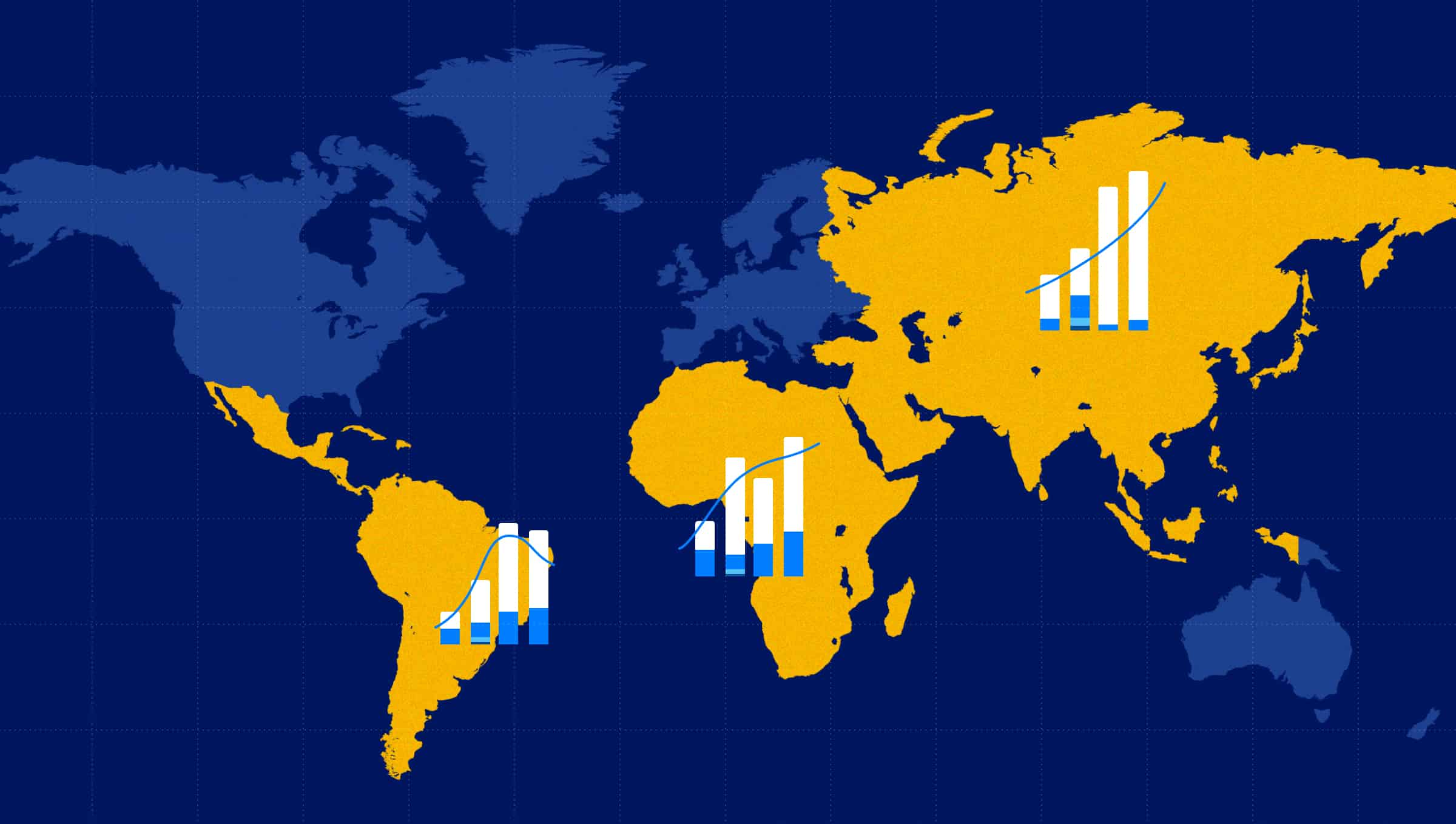Emerging markets are markets in developing countries that have already seen rapid growth and are expected to continue growing as they engage more with the global economy. For many investors and companies, emerging markets can serve as an opportunity, assuming the right choices are made at the right time. Private companies within emerging markets are also an attractive option but require their considerations and strategy.
Like any potential investment, performing due diligence for emerging market companies is essential to protect investors and accurately predict the value of a potential investment. The challenge is that private company data in emerging markets can be more challenging to access and evaluate due to unique factors that affect its availability and accuracy.
Investors can employ specific strategies to ensure the private company data they use in their emerging market research is high-quality and accurate. There are tools and resources available that help.
Quick takeaways
- Emerging markets offer exciting potential for portfolio diversification and high growth.
- Because private company data from emerging markets is less readily available and affected by more complex factors than more developed markets, analysts need to know what to consider when evaluating emerging market data.
- Tapping into private market information within emerging markets can help you find hidden opportunities that your competitors may miss if they don’t know how to find the data.
Why invest in emerging markets?
When the term was first coined in 1981 by economist Antoine van Agtmael it replaced the less familiar phrase “third-world” being used at the time. This subsequently began a shift in perspective for investors from viewing developing countries as lagging behind their developed counterparts to exciting new high-growth opportunities.
Today, 27 countries are listed as emerging markets; the list ranges to include countries like Brazil, Russia, India, and China (the BRIC nations), long-considered emerging markets expected to continue growing, to less mainstream economies like Hungary, Pakistan, and Qatar — countries that have historically gotten less public attention but show promise for growth in the future.
Investors today look to emerging markets for two main reasons: portfolio diversification and growth potential.
Filling a portfolio with investments concentrated in its home country (like U.S. firms investing exclusively in U.S. companies) or investing solely in developed economies means a higher risk when that country or the developed economy as a whole sees a tumultuous period (which is inevitable).
Emerging markets perform differently than developed ones; they aren’t affected by the same factors and thus don’t see the same ebbs and flows as developed economies. However, policies and actions by developed nations can also have significant effects on emerging markets. Diversification through emerging market investment can protect the purchasing power during times when its developed-market assets are unstable.
At the same time, while emerging market investments may be more unpredictable than those from developed economies, they show overall higher growth potential long-term. Even after the challenges of 2020, S&P predicts a higher-than-expected growth for emerging markets going into next year thanks to strong Q4 2020 performance and quicker pandemic recovery than initially anticipated.
To capitalize on emerging market opportunities, investors need to put strategies in place that ensure data reliability and accuracy for private companies in emerging markets they’re considering.
What to look for in private company data in emerging markets
Emerging market data can be challenging to work with and hard to come by because of its potential to be biassed, outdated, or just plain inaccurate. That said, because more effort is required to verify it, there is an opportunity for investors willing to do the research to uncover high-potential investments before other competitors.
So what should investors look for when seeking private company data in emerging markets?
First, it’s necessary to gain context beyond individual companies. Emerging market investments are more volatile and can be affected by political unrest, less economic oversight, and other factors. When considering entry into a particular region or industry, gaining context before diving into specific companies helps investors make more informed decisions.
Emerging market data should never be taken at face value. Those performing due diligence should not only check for a source but ensure the source comes from an unbiased perspective. Government agendas are particularly prevalent in emerging market data and should be considered by those evaluating it.
Putting a time stamp on data is also essential. Emerging market data can lag behind real-time, quickly-changing factors that affect valuation and growth potential. Therefore, researchers should ensure information is recent and that no significant new factors have come into play since it was reported.
As investors move into company-specific data, considering the broader context and its relationship to factors like industry-specific challenges, market drivers, and culture is necessary to understand its value and overall investment risk. For instance, some industries (like construction) may see more volatility in times of economic turmoil, while others (such as healthcare) may remain stable even during a downturn.
In short, gaining regional and macroeconomic context and understanding industry factors at play is an integral part of accurately evaluating private company data in emerging markets.
Finding private company data in emerging markets
There are a variety of ways to find private company data. AlphaSense users ready to dive into emerging market research can start with a quick search — we did one for “emerging market reports” that yielded 514,000+ documents that include 498 companies, 75 industries, and 229 regions around the globe.
You can start building your private company information portfolio by using content such as press releases, news reports, and even leveraging public data to create look-alike proxies that will help you better understand the range of a company’s size, revenue, etc. profit, and costs.
There are also registration and government documents that even private companies need to file — they may be harder to find, but the information is out there. Ultimately, opportunities often come from finding information before your competition. Private companies in emerging markets are an excellent choice, as long as you have the right tools and strategies in place to find the correct information.



